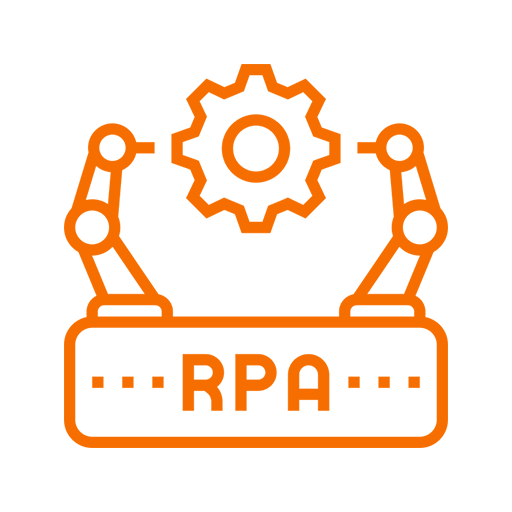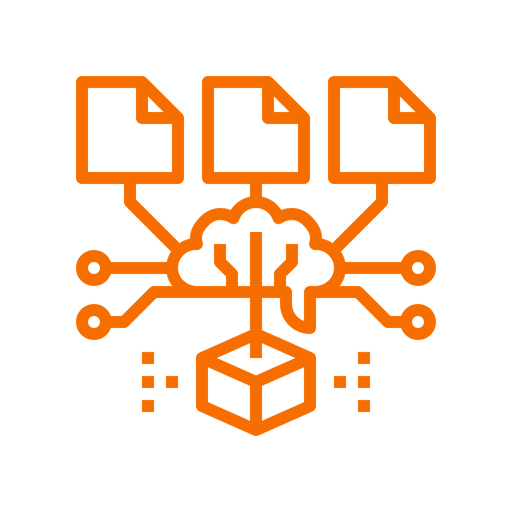
Intelligent Automation

Emerging technology is a multidimensional instrument that allows people to reconsider how we combine information, analyze data, and use the resulting insights to make better decisions. Through Intelligent Automation solutions, we help federal agencies improve production levels and efficiency, comply with regulations, and save money. We can accomplish this by creating RPA, ML, and artificial intelligence products. In addition, we can automate AI-driven processes with Intelligent Automation solutions, enabling process orchestration to improve decision-making.

Artificial Intelligence:
Every aspect of life is changing thanks to artificial intelligence (AI) technology. Federal agencies that provide health, social, and border services as well as revenue, pensions, and social security to citizens can benefit from artificial intelligence by reducing costs and maximizing efficiency. We deliver value at scale by establishing an automation environment, bringing in operational excellence, and putting use cases into action.
Additionally, AI can help improve the accuracy and speed of decision-making in these areas, leading to better outcomes for citizens. For example, in healthcare, AI can assist in diagnostics and treatment planning, allowing medical professionals to provide more personalized care to patients. In border services, AI can aid in identifying potential security threats, while in revenue and pension services, it can assist in detecting fraud and improving the efficiency of the claims process. Overall, the implementation of AI in government agencies can lead to a more efficient and effective use of resources, ultimately benefiting the citizens they serve.

Machine Learning:
Machine learning is one of the branches of artificial intelligence. Businesses can create new products based on market trends and analyze corporate operating patterns through them. When using statistical methods in these enormous data sets, machine learning seeks patterns and creates an implementation code that enables agencies to recognize such patterns.
Machine learning can also help businesses predict future trends and make more informed decisions. For example, by analyzing sales data, a company can predict which products will be in high demand in the future, and adjust their inventory accordingly. Machine learning can also be used in customer service, such as chatbots, to quickly and accurately answer customer inquiries, improving overall customer satisfaction. Additionally, machine learning can help detect fraud, improve supply chain management and optimize marketing campaigns. It can also be used in manufacturing processes to predict equipment failures, which can help to reduce downtime and maintenance costs. Overall, machine learning is a powerful tool that can help businesses improve efficiency, increase revenue, and gain a competitive edge in the market.

Robotic Process Automation:
A software-based method for automating corporate activities. By using the current infrastructure of underlying systems, RPA enables federal agencies to automate manual, monotonous, and norm-based business operations in a non-intrusive manner.
RPA can also be used to automate back-office functions such as HR, finance and accounting, and IT operations. This can help to reduce costs and improve accuracy by automating tasks such as invoice processing, expense reporting, and employee onboarding. Additionally, RPA can be implemented quickly and easily, with minimal disruption to existing systems and processes. This makes it an attractive option for government agencies looking to improve efficiency and reduce costs without having to invest in expensive new technologies.
Another advantage of RPA is its scalability, allowing agencies to automate more processes over time. This can help to achieve greater efficiency and cost savings as the organization grows and changes. Furthermore, RPA enables agencies to improve their data management and analytics capabilities, by providing a consistent and accurate data flow, allowing agencies to make better-informed decisions. Overall, RPA can help government agencies to improve their performance, reduce costs, and better serve the needs of their citizens.

Predictive Modeling:
Predictive models assist firms in luring in, keeping, and expanding their most lucrative clients. To get operational insights into your current data, processes, customers, and markets, we offer deployable solutions. Anticipating trends and developing the capacity to go into more lucrative companies results in risk mitigation.
Predictive models can also assist companies in identifying potential new markets and opportunities for growth. By analyzing data on consumer behavior and market trends, companies can identify areas where there is a high demand for their products or services. Additionally, predictive models can be used to identify potential risks and challenges that a company may face in the future, allowing them to take proactive measures to mitigate those risks.
Predictive models can also be used to optimize pricing, marketing, and sales strategies. For example, by analyzing data on customer buying habits and market trends, companies can develop more effective pricing strategies that will help them to increase revenue and profitability. In addition, predictive models can help companies to better understand their customers, allowing them to develop more targeted marketing and sales strategies that will help them to attract and retain more customers.
Overall, predictive models can provide valuable insights that can help companies to improve their performance, reduce costs, and achieve long-term growth. They can also help organizations to make better-informed decisions and to stay ahead of the competition.
